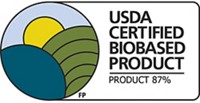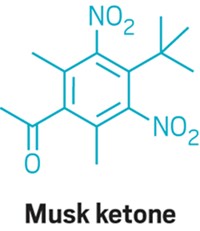Advertisement
Grab your lab coat. Let's get started
Welcome!
Welcome!
Create an account below to get 6 C&EN articles per month, receive newsletters and more - all free.
It seems this is your first time logging in online. Please enter the following information to continue.
As an ACS member you automatically get access to this site. All we need is few more details to create your reading experience.
Not you? Sign in with a different account.
Not you? Sign in with a different account.
ERROR 1
ERROR 1
ERROR 2
ERROR 2
ERROR 2
ERROR 2
ERROR 2
Password and Confirm password must match.
If you have an ACS member number, please enter it here so we can link this account to your membership. (optional)
ERROR 2
ACS values your privacy. By submitting your information, you are gaining access to C&EN and subscribing to our weekly newsletter. We use the information you provide to make your reading experience better, and we will never sell your data to third party members.
Policy
Green Claims
Federal Trade Commission proposes to tighten eco-marketing guidelines
by Cheryl Hogue
October 25, 2010
| A version of this story appeared in
Volume 88, Issue 43

“Eco-friendly,” touts the tag hanging from an insulated lunch tote. “Environment-friendly,” reads the label on a household cleaner. Yet exactly what these green marketing claims mean isn’t clear to consumers, according to the Federal Trade Commission.
Now, FTC, the federal agency tasked with ferreting out unfair or deceptive advertising, is putting pressure on companies to drop overly broad environmental claims. This includes such phrases as environmentally friendly and eco-friendly.
“Such claims are likely to suggest that the product has specific and far-reaching environmental benefits,” says an FTC proposal issued earlier this month. “Very few products, if any, have all the attributes consumers seem to perceive from such claims, making these claims nearly impossible to substantiate.”
The agency proposal would revise the green marketing guidelines FTC initially established in 1992. That guidance describes the appropriate use of claims such as “environmentally preferable,” “biodegradable,” and “ozone safe.” FTC last updated its environmental marketing guidelines in 1998.
“In recent years, businesses have increasingly used ‘green’ marketing to capture consumers’ attention and move Americans toward a more environmentally friendly future,” FTC Chairman Jon Leibowitz says. “But what companies think green claims mean and what consumers really understand are sometimes two different things.”
For instance, FTC’s proposal would clarify the meaning of “degradable,” a term that includes biodegradable. To use this claim, the current guidelines say, marketers must substantiate that the entire package or product breaks down “within a reasonably short period of time” after disposal. Under the proposal, the time period would be specified as “no more than one year after customary disposal,” such as placement in a landfill.
In addition, the commission would expand current guidance on claims that a product is “free of” a particular chemical. The changes would clarify that such claims are deceptive if the substance has never been used in similar products. “Free of” claims would also be appropriate even when an item has trace amounts of the chemical, FTC says.
The proposal also, for the first time, would target marketing claims for carbon offsets. Purchases of offsets fund projects that reduce greenhouse gas emissions, such as capturing methane from landfills or planting trees to absorb carbon dioxide from the atmosphere. Companies, universities, and other organizations or people who purchase offsets equivalent to the amount of greenhouse gases they emit can claim they are “carbon neutral.”
Companies need “competent and reliable scientific evidence to support their carbon offset claims,” the FTC proposal says. These include accounting methods ensuring that the emissions reductions are properly quantified and that the offsets aren’t sold more than once, the commission says.
The proposal also would advise marketers to disclose whether the emissions offsets would take place within two years of purchase. Emissions offsets that are required under law should not be advertised, FTC adds.
Although it digs into claims of greenhouse gas emissions offsets, FTC’s proposal steers clear of three widely used environmental marketing terms: “sustainable,” “natural,” and “organic.” The commission says it either “lacks a sufficient basis to provide meaningful guidance” or wants to avoid duplicating regulations or guidelines from other agencies. For instance, the Department of Agriculture has a program establishing the acceptable use of the word organic for items derived from agricultural products, FTC says.
The other words are fraught with ambiguity. For example, a marketer may intend to convey that a product has environmental benefits by using the word sustainable. Yet for a significant number of consumers, this term either carries no single environmental meaning or conveys that the product is durable or long-lasting, FTC says.
Many in industry are backing expansion of FTC’s green marketing guidelines. The Consumer Specialty Products Association (CSPA) sought several of the proposed changes, says Beth L. Law, the industry group’s assistant general counsel and vice president for international affairs. They include proposed guidance on biodegradability and “free of” claims, Law says.
Meanwhile, FTC’s proposed guidance for environmental certifications and seals of approval has the support of CSPA and the American Cleaning Institute (formerly the Soap & Detergent Association). Green certifications and seals have proliferated in recent years, which can lead to consumer confusion, says Michelle Radecki, general counsel for the cleaning institute. Consumers need more information on what these credentials mean, she tells C&EN.
FTC’s proposal would caution marketers not to use certifications or seals that do not state the basis for these credentials. Qualifications for the certification or seal would have to convey that it refers only to specific and limited benefits, the proposal says.
The commission is accepting public comment on the proposed changes to its environmental marketing guidelines and is expected to finalize them next year.





Join the conversation
Contact the reporter
Submit a Letter to the Editor for publication
Engage with us on Twitter